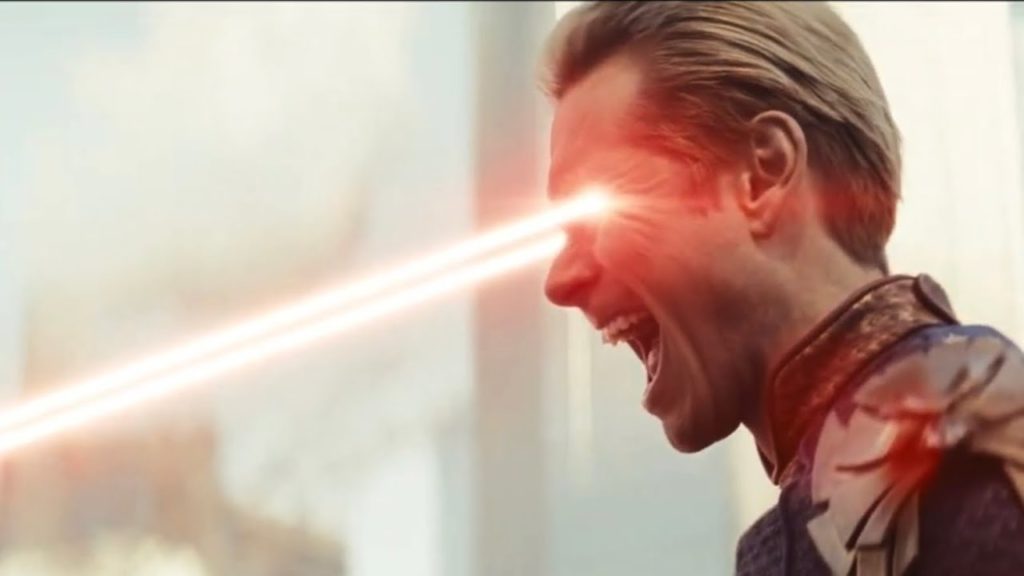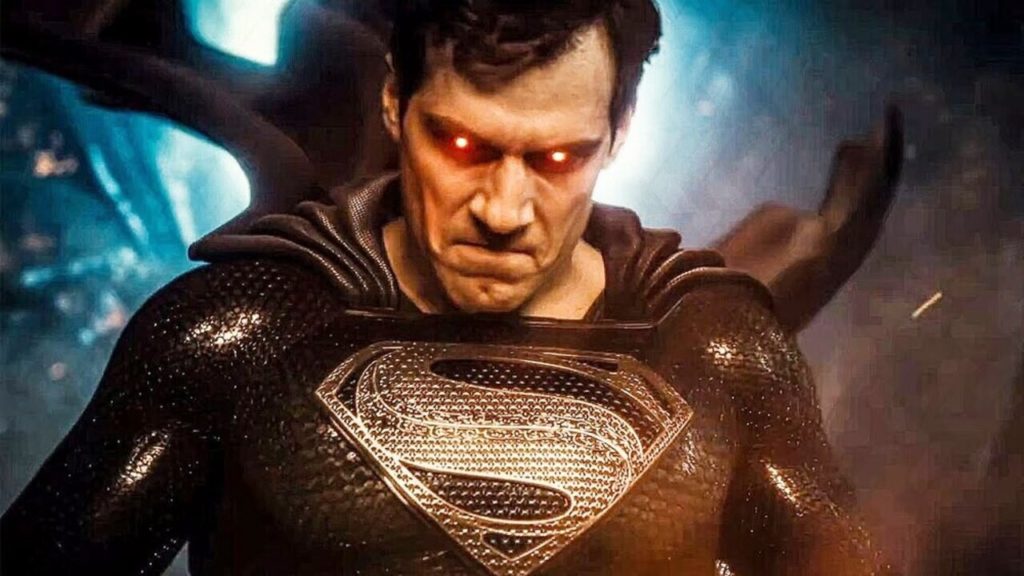
[I rarely write about new releases, so I’m not in the habit of doing spoiler alerts at the top of my posts. BUT this post includes spoilers for Eternals. *Taylor Swift voice* Don’t say I didn’t, say I didn’t, warn ya.]
Every so often, a satire or parody comes along that is so effective, so indelible, that it starts to replace the original target as a reference point. I’m thinking, for example, of the way that reviews of the recent spate of Bohemian Rhapsody-inspired music biopics reference Walk Hard far more often than they reference the films that Walk Hard lampoons; or consider the way Weird Al’s “The Saga Begins” completely eclipsed Don McLean’s “American Pie” in the minds of a micro-generation of Zillennials. (Or is that just a “me” thing? No, I’m willing to bet that all the Radio Disney play of this song rotted the brains of other people my age, too.) Well, right now, I want to talk about a recent case of this phenomenon that inadvertently tipped me off to a plot twist in Eternals, the most recent entry into the MCU.
If you’ve seen Eternals and you watch The Boys, you may have guessed by now that I’ve gathered you here today to discuss Homelander. It’s no secret that Homelander, the show’s premier villain, serves as the main fascination for many viewers of The Boys. Antony Starr does standout work on Amazon Prime’s sick superhero send-up; search “Antony Starr Emmy” on Twitter, and you’ll find an abundance of outraged fan tweets about how Starr’s been robbed of a nomination two years running. While I have a more measured appreciation of The Boys as a whole, I will concede to the fanboys that Starr gives one of the more surprisingly intricate performances on a television drama in recent memory.*

The whole conceit of The Boys boils down to this: if superheroes really existed, they’d be power-mad perverts to whom no rules apply. So it’s no surprise that Homelander, the leader of the show’s elite superhero squad called the Seven, turns out to be the most power-mad and perverted of all. The show, as well as the comic series it’s based on, is ostensibly a satire of other superhero properties. As Doreen St. Félix observes in her stellar review of season two, the show sits uneasily at the halfway point between satire and genre deconstruction (Alan Moore’s Watchmen seems to be a bigger inspiration for The Boys than anything else), but I do think that the satire is the hook, so to speak.** The show most plainly reads as a satire of other superhero properties when one looks at the supes that make up the Seven. Each member of the Seven is transparently modeled on a member of DC’s Justice League, and Homelander is Superman. To be more specific, he reads like Marvel’s Captain America with Superman’s powers.
This means that Homelander has super strength, the ability to fly, and, of course, laser eyes. And because this is The Boys, Homelander does some horrific fucking things with his laser eyes, let me tell you. His favorite move is slicing people in half, which the show repeatedly depicts with its usual level of graphic violence. At the end of season one, Homelander kills his boss and lover in cold blood by looking into her eyes and focusing his laser gaze directly into her skull. In season two, Homelander imagines committing mass murder with his laser eyes, razing a crowd of protesters to the ground. We’re forced to watch this lurid scene play out before a quick cut reveals that Homelander hasn’t actually used his powers to silence the assembly but merely fantasized about it.
The moment Ikaris (Richard Madden) used his laser eyes in Eternals, I felt uncomfortable. The first time he uses his power on screen, he’s heroically saving ancient humans from the Deviants, the world-devouring threats from which the Eternals have been tasked with protecting Earth. Ikaris isn’t doing anything nefarious, in any way, but those laser eyes put the chill on me faster than Kevin Feige slapped “from Academy Award winning director Chloe Zhao” on all of the Eternals marketing materials after this year’s Oscars ceremony. Every instinct in me went, “HELL no, not the laser eyes,” and I distrusted Ikaris from the start for no reason other than the laser eyes. I fully blame Homelander.
Like Homelander, Ikaris is an obvious riff on Superman. He flies, comes from outer space, and has superstrength and heat vision. I can’t speak knowledgeably about the comics, but the film version of Eternals heavily leans into the Superman comparison, going so far as to have a child verbally mistake Ikaris for Superman. In various interviews, Chloe Zhao called Ikarus “our own take on Superman” and acknowledged the influence Zack Snyder’s Man of Steel had on her superhero film.
Recent cinematic iterations of Superman have trended towards the, shall we say, more disillusioned. When everything’s a gritty reboot, nothing is, and so by now I’ve come to expect that any new Superman (or “Superman”) will turn out to be Evil Superman, since that’s the edgier, more “realistic” option. Evil Superman has a storied history, but lately it seems that he’s taken over. See: Justice League (2017) and Zack Snyder’s Justice League (2021), which adds the “Knightmare” sequence that hints at more Evil Superman. So I suppose it was expected that Eternals’ Ikaris would not only be the MCU’s Superman but also its Evil Superman/subversion of the Superman myth, as he does, ultimately, turn out to be.***

Despite being satire, Homelander is, arguably, the most culturally visible Evil Superman at the moment. Season two of The Boys was Amazon Prime Video’s biggest hit to date; although the streaming services rarely release meaningful viewership data, Nielsen’s weekly “Streaming Top 10” showed The Boys drawing in huge numbers. And so we’re back where we started, with the parody overtaking the original.
I won’t go so far as to say that Homelander has ruined Superman for me – that would be hyperbolic. But Homelander’s laser eyes are so disturbing that I think we need to put a moratorium on heat vision for now. I would like to say that I guessed where Eternals was going with Ikaris because I have such a finger on the pop culture pulse that I used recent trends to predict the arc. That would be a lie, however, and I can’t lie to you in good conscience. No, it was my absolutely visceral reaction to the laser eyes that prompted my suspicion.
Laser eyes are for villains now. Sorry, I don’t make the rules.
*I’m partial to Starr’s work in season one, where you can literally see him turn the charm on and off (the way he makes his eyes go dead on command freaks me out), but Starr portrays Homelander’s mask-off villainy in season two with similarly terrifying precision. It’s a marvelously controlled performance in a notably unsubtle and over-the-top show.
**I could also go on at length about how it’s never quite clear what, exactly, The Boys is satirizing. Is it other superhero properties, or is it our (real) cultural obsession with (fictional) superheroes? In the same review, St. Félix notes how The Boys takes aim at the real world cultural domination of Disney/Marvel as much as it parodies the Justice League, in an apparent departure from the source comics.
***I wouldn’t say that Ikaris is quite evil in the film, but he secretly works at cross purposes with the rest of the Eternals for what he believes to be the greater good. That greater good involves the complete destruction of Earth, however, which I guess tips him into the villain category, relatively speaking.